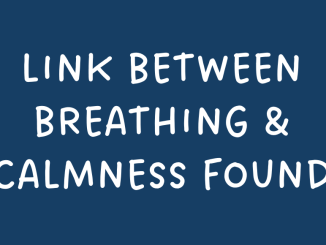We all have those pesky anxious thoughts, some people more than others, and sometimes just a little more than at other times.
Our anxious thoughts come from the areas of our brain that produce emotions, and while sometimes we’d rather not have them, they do happen for a reason.
We have the anxiety-generating part of our inner system to help us survive and keep us safe.
But when this part of us has been invested in a little too much, exercised too frequently, and listened to more than necessary, it can become more than we need.
Just imagine: you’re a caveman out hunting food (if you don’t hunt you will starve as there is no supermarket to rely on) and as you move through the jungle with a spear in hand the anxiety-producing part of your brain is 100% doing its job when it whispers reminders to you that there are wild tigers in this area.
If you don’t have these reminders of potential dangers you might end up being a big cat’s lunch.
While most of us aren’t living in that environment today, we still do need an anxiety function to help keep us safe, but what we want is the anxious part of us to be regulated and functioning only as much as needed, not more than that.
David A. Carbonell, PhD in his book, The Worry Trick, spells out a potentially helpful technique to help keep these intrusive thoughts and worries in a healthy place, it’s called the ‘Uncle Argument’ technique.
Who is Uncle Argument and how might this help? An excerpt from the book explaining this technique can be heard in this video:
You might even be able to visualise Uncle Argument in your mind in these moments, I think he looks like the image at the top of this post!
What I like about these metaphors is they do give a theory that I believe strongly in – the more we resist something the more it tends to persist.
Think about resistance weight training – if you want to grow your muscles push or pull against an opposing force (gravity).
Telling yourself to stop doing something is invalidating an important part of us. It is resisting a natural phenomenon and the more we ignore it the more it might start screaming at us for acknowledgment.
You can see why potentially using methods that acknowledge a thought or a feeling and then letting it slip past us is probably a better method.
The thought or emotion feels heard and valued, we might even thank our brain for trying to keep us safe with these important messages, but it doesn’t mean we need to be at their behest.



